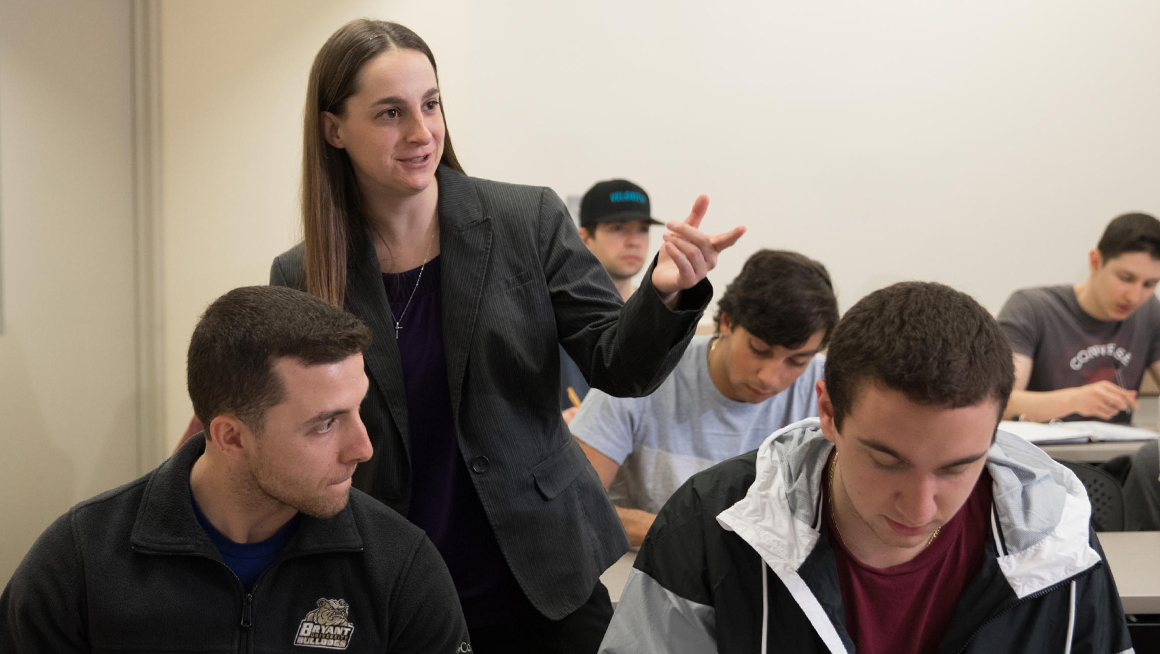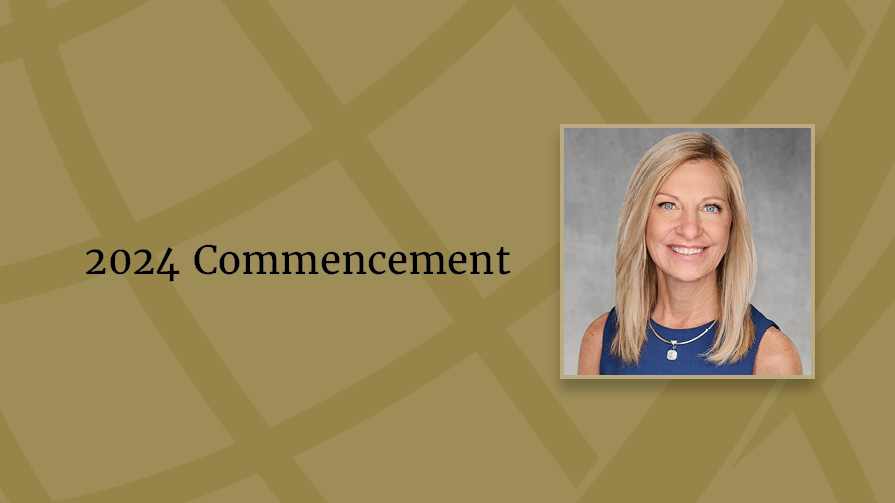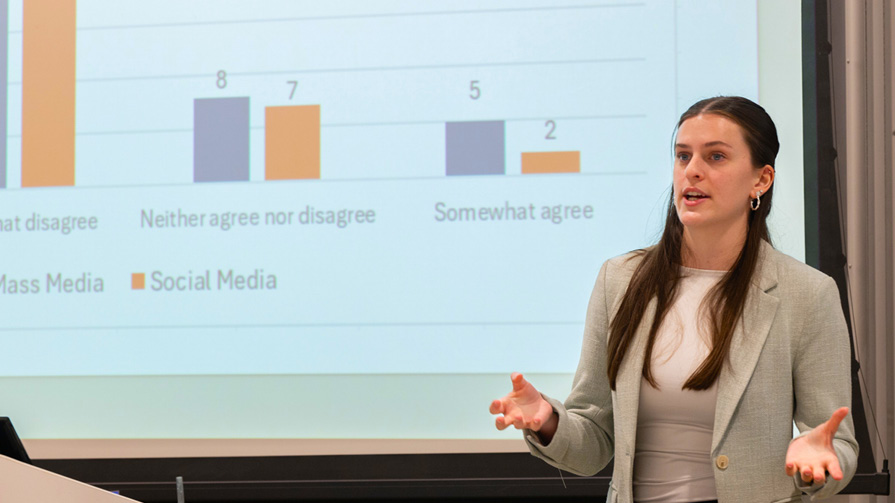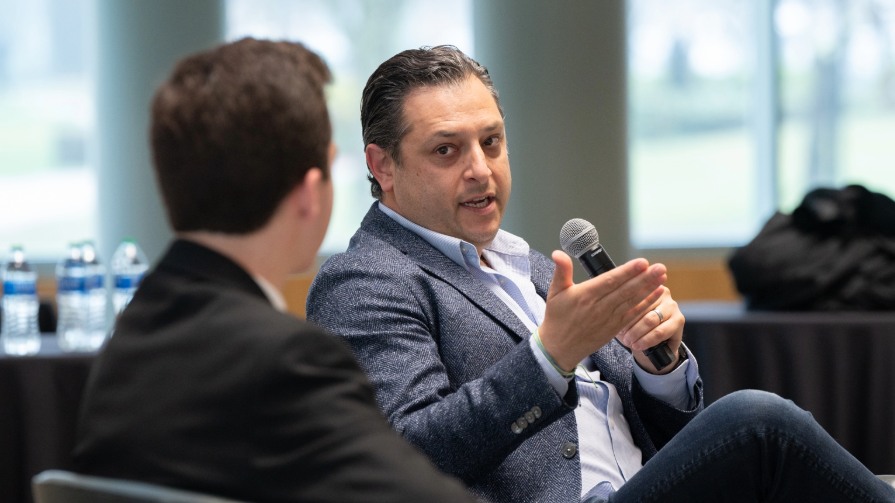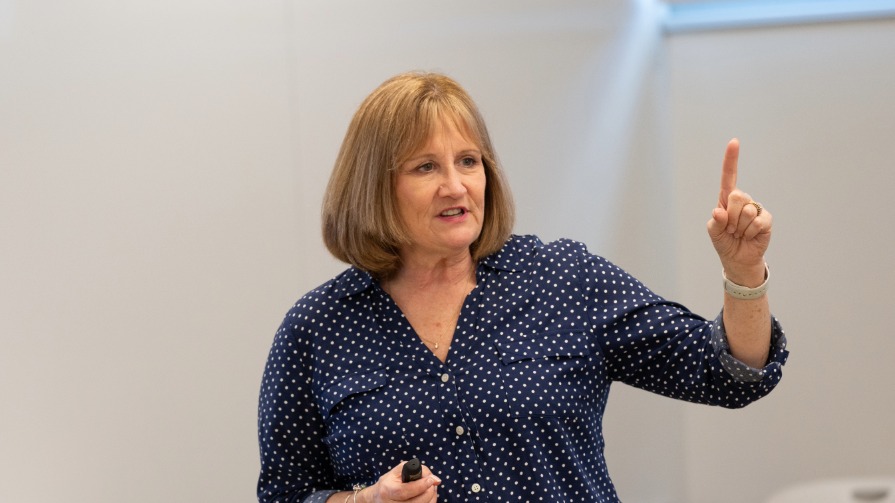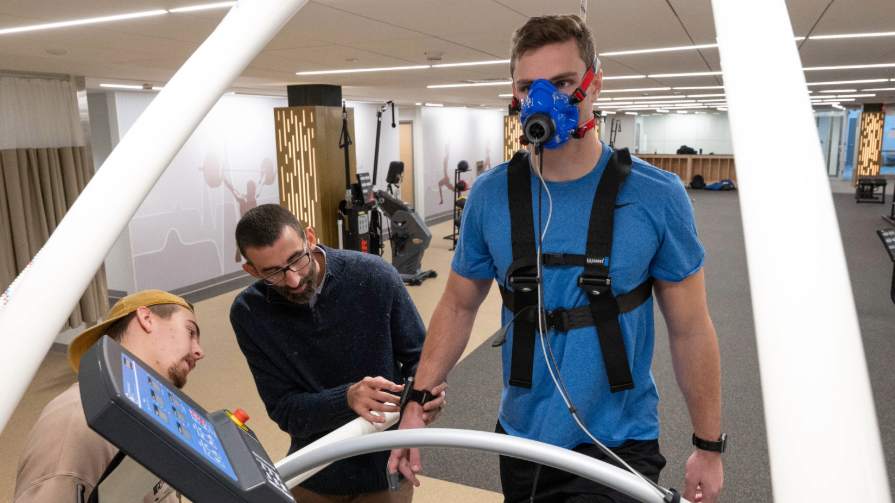Innovative teaching and learning is a central part of Bryant’s mission. Through the Principles of Economics Competition, Bryant’s Economics faculty developed an exciting way to help first-year students learn and apply economic knowledge with a multi-section, team-based competition.
In the semester-long competition, which supplements the curriculum, student teams are presented with current economic issues, trends, or events. Beginning early in the semester, they perform research and collect data to understand the issue and use the tools and theories they’re learning in class to analyze those topics from an economic perspective.
At the end of the semester, the teams present their analysis and suggested solutions to peers and judges from across the University. Student teams are judged on technicality, creativity, and teamwork. The competition ends with a celebration of learning. Students, faculty, staff, and administrators gather for a reception, continue to discuss modern-day issues, and winners are presented with a cash prize.
“We always ask, how can we continually enhance the learning outcomes of our student? Through the competition they’re learning from both their professors and their peers –the competitive aspect inspires them to go one step further.”
Students enhance their collaborative, communication, analytical, and critical thinking skills and apply them in new ways throughout the competition. It also encourages them to bring together the wide range of concepts they’ve learned and apply them, in-depth, to issues ranging from the student debt crisis to immigration, environmental issues, and issues of inequality.
For Mark Dyer ’20, a Marketing, Economics, and Entrepreneurship major, the competition helped him build skills he’ll need for his career. His team researched issues regarding the U.S. healthcare system, a subject he didn’t know much about. “That was actually pretty useful,” he says, “in that it shows you that you have the skills to research everything, and I learned a lot about something new.” The competition also helped him build his presentation skills. “It really helped build confidence as a first-year student to be able to deliver our presentations to the judges.”
“My project helped me become a better researcher,” says International Business student Eva Nesline ’20, whose team focused on how various gun control proposals might affect the economy. “I learned how to read academic papers and find the information I needed, and working in a team allowed us to individually look at different aspects of an issue and then combine our knowledge and perspectives to find a solution.”
Getting more
Laura Beaudin, Ph.D.; Aziz Berdiev, Ph.D.; Allison Shwachman Kaminaga, Ph.D.; Sam Mirmirani, Ph.D.; and Edinaldo Tebaldi, Ph.D., faculty members in the University’s Economics Department, explained the implementation of the competition in “Enhancing the teaching of introductory economics with a team-based, multi-section competition,” a recent article published in the Journal of Economic Education.
“We always ask, how can we continually enhance the learning outcomes of our student?” says Beaudin, the competition’s coordinator. “Through the competition they’re learning from both their professors and their peers – the competitive aspect inspires them to go one step further.”
“The completion pushed us all to be better,” agrees Savanah Miles ’19 an Economics and Financial Services major who used what she learned from the competition during her internships with companies like TD Securities and Merrill Lynch. She also valued the focus on teamwork, a hallmark of several of the classes she’s taken at Bryant. “It helps you to better understand how you work with others: Do you like to take charge? Do you like to stand back and look at the big picture? How good a listener are you, really? That way you can know your style and improve on it before you even get to the workforce.”
